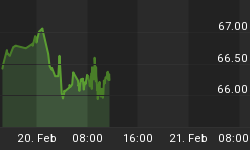Many of us who write about the precious metals field have put out their 2009 forecasts and predictions for the New Year. This writer is no exception, but it seemed to me that it might be nice to look at my mission statement and determine if I could compose a simple story that might engage the reader to think about the current dire state of affairs in the economy and how an honest "money" system might help on an individual basis.
My mission statement is, "To teach and empower people to understand the benefits of an Honest Monetary System." Although the words gold and/or silver are not even mentioned in my mission statement, they are both very important components in an honest money system -- they instill trust. And the lack of trust is the core issue of today's economic problems. Our banking institutions and well established investment firms do not trust each other, and the system is grinding down. This has even affected the "Big Three" automakers, who are experiencing problems in this economy . . . but it wasn't always that way.
Looking back in time I found some very interesting facts regarding Henry Ford and the typical North American autoworker. On January 5, 1914, Ford announced that Ford Motor Company employees would receive a minimum wage of $5 a day, more than double the average pay available at that time. This date is just within days of the Federal Reserve Act that Congress passed during the Christmas Holiday in 1913. Basically, Congress relinquished its constitutional power and duty to "coin Money and regulate the Value thereof," to a private banking cartel, the Federal Reserve System.
That action was a blatant overthrow of The Coinage Act of 1792, which had been signed into law by President Washington and defined the "dollar" as a coin containing 371.25 grains (troy) of fine silver. This Coinage Act of 1792 established the monetary system the Founders had outlined in the Constitution. (See: what is a dollar?)
So, getting back to the Ford example, what would happen these days if Ford Motor Company decided to pay their employees 5 "honest" dollars a day? Could this be accomplished? For purposes of this article let us round a real dollar to 0.75 troy ounces of silver. Additionally, I am going to use 245,000 as the Ford employee base reported in September 2008 (Wikipedia).
Therefore 245,000 employees at $5 (~3.75 troy ounces, based on the Coinage Act) per day would be equivalent to 918,750 troy ounces per day! This implies within a one-month time frame (~22 working days) a total of more than 20 million ounces.
Of course if we check the data in 2006 (latest data available) we find the average pay per employee to be almost $29 per hour. From last week's article we can see that the average price of silver for the year 2006 was about $11.50 per ounce. So, quite easily we might state 2.5 ounces per hour, or 20 ounces per day. Looking at the 2006 Ford Motor Company stats, using dirt-cheap silver, we have 107,800,000 ounces of silver in ONE MONTH!
This article can be taken several ways and that is the point -- I want the reader to think. One area that gets very little attention in the mainstream financial press is that even mainstream political people are waking up to the problems. Just one example is shown in an excerpt below, from the Idaho Republican Platform (click here for full platform):
"We believe the Federal Reserve Bank should be abolished and the issuing power restored to the people through their representatives in the U.S. Congress with the stipulation that the U.S. dollar be backed by gold and silver." (Emphasis mine.)
So at a state level, people are beginning to realize that the system has failed them. And Idaho is not the only state; in fact Nevada and New Hampshire have tried in the past, and this week Senate Bill 453 was purportedly introduced by Greg Walker, a state senator from Indiana.
In conclusion, 2009 may turn out to be a year where one primary question is not so much who can we trust, but what can we trust?
It is an honor to be,
















